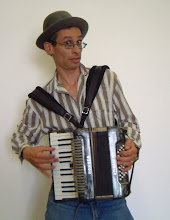One of my favorite Yiddish expressions deals with the
elusive nature of truth. When you get past all the red herrings, dead end
roads, excuses and denials, and finally get to the real reason, we say
triumphantly: “Dâ liegt der hund begrâben”. This
is where the dog lies buried.
It’s a funny phrase if you think about it. And the strange
thing is that you find the exact same expression in other languages. In Polish
they say tu leży
pies pogrzebany. The Russians also have it: вoт где сoбaкa зapыта! [vot gde sobaka
zaryta!] In Hungarian, they say: Itt van a
kutya elásva.And not surpringly the Germans say it
too, with the exact same meaning as we have in Yiddish.
The interesting thing is how the expression seems
to occur almost exclusively in countries where Jews lived and Yiddish was
spoken. Even Israel has it: po
kavur hakelev, an obvious calque
from the Yiddish. Other that that, the phrase does not seem to travel far from
the confines of Eastern and Central Europe. Oddly enough, there is a Swedish
version, albeit with a different meaning: Det ligger en hund begraven här is used when you think someone is trying to hide something but you can’t
quite put your finger on it…like we would say in English, “I smell a rat”. The
exact same thing is found in the Finnish siinä on koira
haudattuna. But those are
exceptions. No other nations seem to have latched onto this usage…not the
Italians, not the Chinese, not even the French. For the most part, it seems to
be an idiom co-territorial with the domain of Yiddish-speaking Jewry.
What is the source of this odd
fascination with the burial location of dogs? One possible explanation comes
from Middle High German, where we have the archaic word Hunde meaning
“treasure”. Then the expression becomes “here is where the treasure lies
buried”. Now that makes a little more sense. So why did treasure get
replaced by dog?
Here is where we can probably
blame the Jews. The German language is replete with nouns ending with –e,
almost all of which lose the final e when taken into Yiddish: hause becomes haus
(pr. hoyz), schule becomes shul, etc. In German, treasure
and dog would have been different words, with only the former ending in e.
In Yiddish, they would have been homonyms.
A buried treasure might have made
more sense, but a buried dog definitely made for a more colorful expression.
It’s not hard to believe that the Poles, Russians and Hungarians would have
adopted the Yiddish phrase into their own languages. What about the Germans?
Undoubtedly the original phrase was theirs…what did our people know of pirates
and buried treasures (Jewish pirate Jean Lafitte notwithstanding)? But if the
word Hunde disappeared from the lexicon, most likely the expression
lapsed as well, only to have been re-imported years later in its modified
Jewish form.
And now you know where the dog
lies buried.

1 comment:
In Spanish we say "aquí hay gato encerrado" (there is a locked cat here) meaning something similar to "I smell a rat": things are not what they look like, these people are hiding something to us, there is some hidden truth lurking somewhere... I just investigated about the origin of the expression and, curiously enough, it was used by thieves in XV and XVI centuries to indicate that a potential victim was hiding a purse full of money. Purses were actually called "cats" and people used to hide them well inside their clothes. The reason for this denomination is not clear: some say that the purses were made of cats' skin, others that the thieves themselves were seen as cats due to their skill and cunningness. So it is curious: a similar say talking about a hidden pet and meaning hidden value. By the way, the Jews were expelled from Spain at the end of the XV'th century (1492).
PS: I am browsing through your old posts and enjoying it. Long time since you last posted. Hope you are doing well. Don't waste too much energy in litigations!
Post a Comment